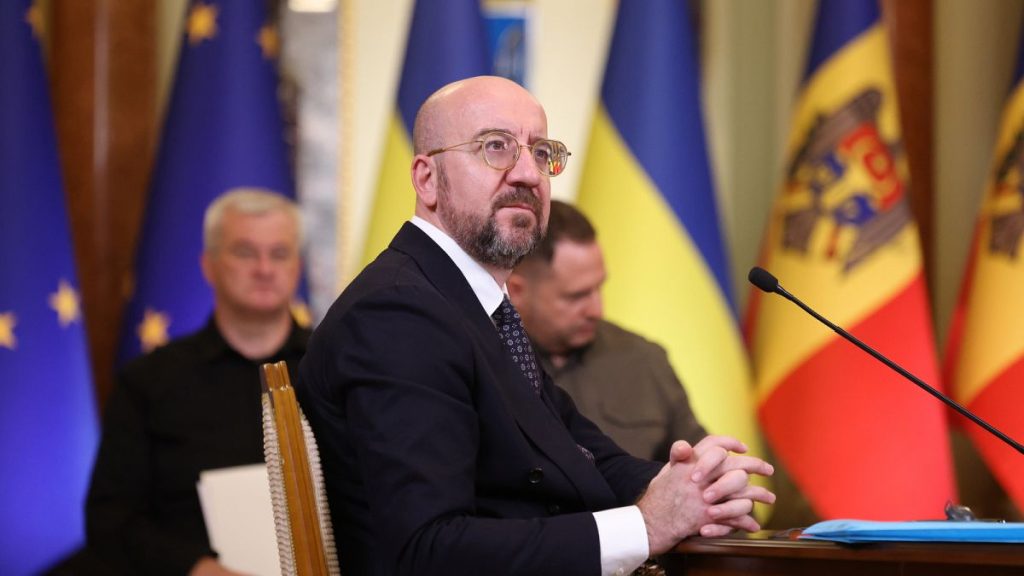European Council President Charles Michel emphasized the importance of EU enlargement, warning that without it, there could be a risk of a new Iron Curtain emerging along the bloc’s eastern flank. He highlighted the significance of stability and economic development in the region for the collective interests of both candidate countries and the EU. Michel’s comments were made on the 20th anniversary of the 2004 enlargement, which saw ten countries – including seven former Soviet republics or satellite states – join the EU. He noted that without this historic expansion, the EU would have been divided by a de facto Iron Curtain, leaving eastern countries vulnerable to political and ideological influence from the Kremlin.
Currently, nine countries from eastern Europe and the Western Balkans are seeking EU membership, but the process is lengthy and complex, requiring significant judicial and constitutional reforms. The EU’s enlargement policy has gained momentum following Russia’s invasion of Ukraine, although there are concerns that more sceptical member states could hinder the accession process. In December, Hungarian Prime Minister Viktor Orbán threatened to block Ukraine’s accession talks, raising questions about the potential impact of a Hungarian presidency on enlargement issues. Despite these challenges, Michel expressed confidence in the EU’s commitment to enlargement, suggesting that constructive abstention could provide a way forward for member states with reservations about specific decisions.
The prospect of Ukraine’s integration into the EU raises concerns about the country’s impact on the bloc’s economy, given its significantly smaller GDP per capita compared to existing members. A report by think tank Bruegel estimated the potential cost of Ukraine’s accession to be substantial, prompting calls for a specific transition model to mitigate the economic impact on the EU. Michel also indicated that other countries with closer economic alignment could join the EU before the end of the decade, provided they meet the necessary criteria and reforms. He urged the EU not to be fearful of Ukraine’s integration, emphasizing the potential benefits of investment and participation in the single market.
In light of the challenges and complexities surrounding EU enlargement, Michel called for a unified and coordinated approach among member states to support the process. Despite potential obstacles, he remained optimistic about the future of enlargement, stressing the importance of shared political will to expand the EU. Michel’s remarks underscored the need for ongoing dialogue and cooperation to address the concerns and priorities of candidate countries while upholding the EU’s values and principles. By finding common ground and working together, the EU can navigate the complexities of enlargement and ensure a cohesive and prosperous future for both existing and potential member states.
As the EU commemorates two decades since its largest enlargement, the focus is on the significance of continuing to expand and integrate new members into the bloc. Michel’s warnings about the risks of division and instability along the eastern flank highlight the importance of fostering growth and cooperation in neighboring regions. By addressing concerns about the economic impacts of enlargement and proposing innovative transition models, the EU can pave the way for a more inclusive and sustainable future. The challenges ahead may be daunting, but with a strategic and collaborative approach, the EU can overcome obstacles and chart a path towards a stronger and more united union.


